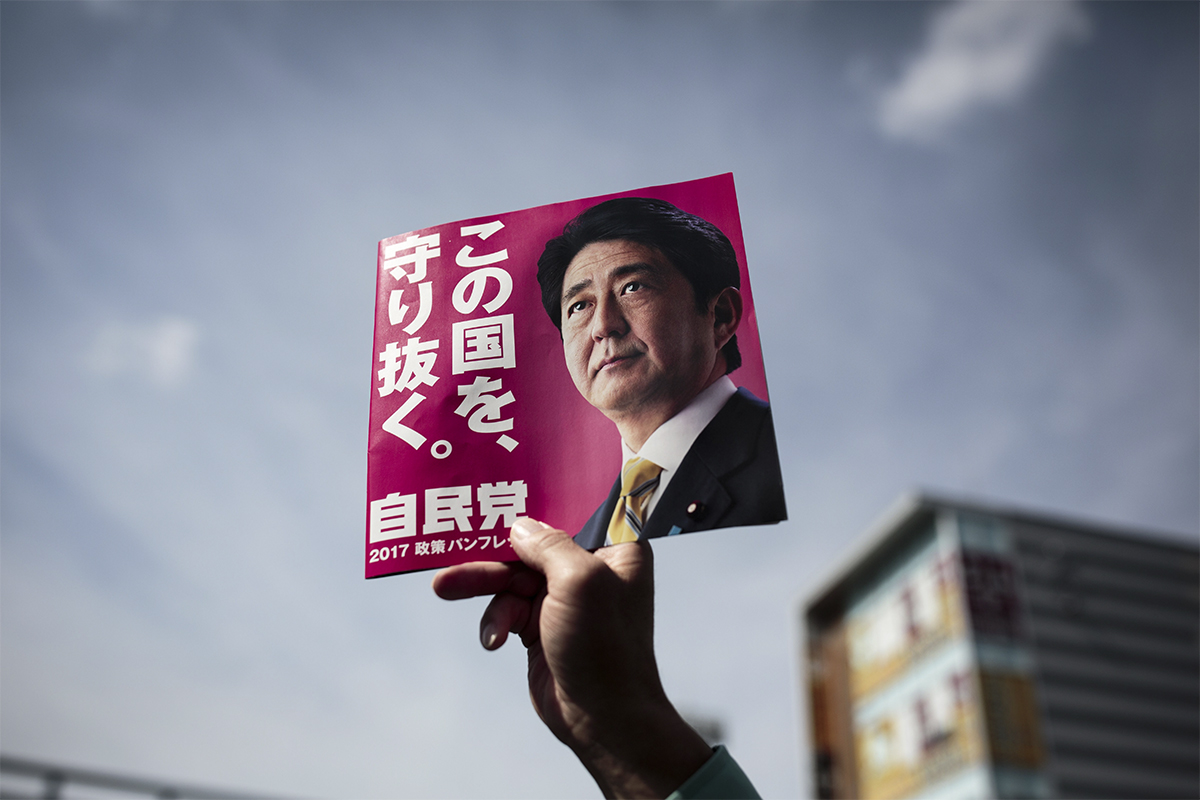
SNAP–BACK
Japan expected to re-elect Abe with smaller majority

PM Shinzo Abe is set to retain his power when Japan goes to the ballot box today in a snap election called a month ago.
A final week poll shows Abe’s ruling Liberal Democratic Party (LDP) holding a commanding lead of 34% over the left-leaning Constitutional Democratic Party and the populist Party of Hope on 13% and 11% respectively. After its initial popularity, the Party of Hope’s (PoH) support has crashed due in part to its leader, Tokyo mayor Yuriko Koike, not standing for election.
Still, Ms Koike’s party has been the main challenge to Abe in this election. The PoH opposes his proposed sales tax hike from 8% to 10% saying that the resulting spending programmes will drive up debt in the already indebted country. Ms Koike’s “Yurinomics” promises “12 zeroes”, which includes a pledge to end nuclear power generation.
The LDP is expected to romp back into office with a two-thirds majority but if they fall short and the PoH holds the balance of power, the populists will likely frustrate Abe’s sales tax plans.
ITALY’S NORTHERN TEST
Rich north to seek greater autonomy through plebiscite

Today, the restive northern regions of Lombardy and Veneto will vote in a non-binding referendum on greater autonomy from the central government.
There’s long been a political divide between Italy’s rich north and poorer south. Both Lombardy and Veneto have governors from the far-right Northern League, which has sought full independence from Italy in the past.
Lombardy and Veneto—home to Milan and Venice respectively—account for almost a third of the country’s economy and a quarter of its population. Tax is the main grievance; Lombardy annually sends $63 billion more than it receives back from Rome. The anticipated “yes” vote will prove a powerful argument to push for change.
Despite the rumblings, there is no strong sentiment to break away from Italy. Even the organisers do not want independence; they want a better financial deal.
LET’S CHANGE SOME MORE
Argentina’s mid-term elections a litmus test on economic reforms

127 of 257 seats in Argentina’s lower house and 24 of 72 seats in the upper house are up for grabs today.
President Mauricio Macri’s Cambiemos Party, which holds 87 and 15 of those seats respectively is expected to consolidate its power in today’s election.
The mid-term elections are essentially a referendum on the president’s economic reforms. Macri has successfully opened Argentina’s economy to the world by reducing foreign exchange controls and removing trade restrictions. Despite a recession last year, Argentina’s economy is expected to grow by 3% in 2017, while inflation has dropped by around 15%.
Regardless of the strong economic indicators, Macri’s critics have argued that his reforms have come at the expense of the poor. The poverty rate currently stands at 28.6%, down from 30.3% at the start of the year.
Expect Macri to capitalise on a strong result by pushing further reforms within the next month, particularly to Argentina’s fiscal systems. The president intends to solve the issue of lost revenue by reducing income tax and tariffs to increase productivity and reduce tax evasion.

